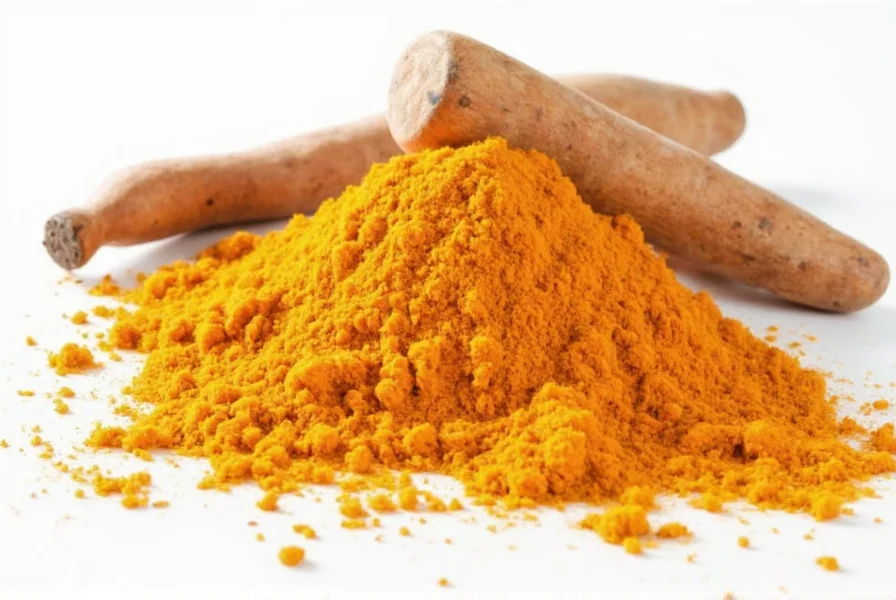Natural compounds derived from turmeric have gained significant attention in evidence-based wellness practices. Understanding the science behind turmeric curcumin supplements for inflammation management requires examining both traditional uses and modern research findings.
The Science Behind Turmeric and Curcumin
Turmeric (Curcuma longa), a member of the ginger family, has been used in traditional medicine systems for centuries. The rhizome contains several bioactive compounds called curcuminoids, with curcumin (diferuloylmethane) representing approximately 2-8% of raw turmeric root by weight. Most high-quality curcumin supplements use standardized extracts containing 95% curcuminoids to deliver therapeutic doses.
Research published in the Journal of Medicinal Food demonstrates that curcumin possesses potent anti-inflammatory and antioxidant properties at the molecular level. However, raw turmeric's low curcumin concentration means you'd need to consume impractical amounts to achieve therapeutic effects—approximately 1-3 grams of curcumin daily would require 12-36 grams of raw turmeric powder.
Evidence-Based Health Benefits
Multiple systematic reviews have examined the clinical effectiveness of curcumin supplementation. A 2022 meta-analysis in Nutrients evaluated 22 randomized controlled trials involving over 1,500 participants. The analysis revealed:
| Health Condition | Research Findings | Evidence Strength |
|---|---|---|
| Osteoarthritis | Significant reduction in pain scores compared to placebo | Moderate (Grade B) |
| Rheumatoid Arthritis | Comparable effectiveness to NSAIDs for symptom management | Moderate (Grade B) |
| Metabolic Health | Modest improvements in insulin sensitivity markers | Preliminary (Grade C) |
| Cognitive Function | Insufficient evidence for significant cognitive improvement | Weak (Grade D) |
Researchers note that curcumin supplements with enhanced bioavailability consistently show better outcomes than standard formulations. The most effective products typically combine curcumin with piperine (from black pepper) or use phospholipid-bound formulations to increase absorption by up to 2,000%.
Optimal Dosage and Supplement Forms
Determining the right turmeric curcumin dosage for joint pain requires understanding different formulation approaches:
- Standardized extracts: 500 mg taken 2-3 times daily (providing 475-1,425 mg curcuminoids)
- Piperine-enhanced: 400 mg once or twice daily (providing 380-760 mg curcuminoids)
- Phospholipid-bound: 250-500 mg once or twice daily
- Liposomal formulations: 200-400 mg once or twice daily
A 2023 review in Phytotherapy Research concluded that most clinical benefits appear at daily doses between 800-2,000 mg of curcumin, with optimal effects typically observed after 8-12 weeks of consistent use. Timing matters too—taking curcumin with healthy fats enhances absorption due to its fat-soluble nature.
Safety Profile and Considerations
While generally well-tolerated, potential side effects of curcumin supplements include:
- Mild digestive discomfort (nausea, diarrhea) at doses above 1,200 mg daily
- Increased bleeding risk when combined with anticoagulant medications
- Possible interactions with diabetes medications requiring blood sugar monitoring
- Rare allergic reactions in sensitive individuals
The European Food Safety Authority established an acceptable daily intake of 0.13 mg per pound (0.3 mg/kg) of body weight. For a 150-pound person, this translates to approximately 20 mg of curcumin daily—significantly lower than typical supplement doses. However, numerous clinical trials have demonstrated safety at much higher therapeutic doses when used for limited durations.
Making Informed Supplement Choices
When evaluating how to choose quality turmeric supplements, consider these evidence-based criteria:
- Standardization: Look for products specifying curcuminoid content (typically 95%)
- Bioavailability technology: Piperine, phospholipids, or nanoparticle formulations
- Third-party testing: Verification from NSF, USP, or ConsumerLab
- Transparency: Clear dosage information and ingredient sourcing
- Clinical backing: Formulations used in published research studies
Remember that turmeric vs curcumin supplements difference is significant—most turmeric powders contain only 3-5% curcumin by weight, while quality supplements concentrate the active compounds. The American Botanical Council recommends consulting healthcare providers before starting supplementation, especially for individuals with gallbladder issues or those taking prescription medications.











 浙公网安备
33010002000092号
浙公网安备
33010002000092号 浙B2-20120091-4
浙B2-20120091-4